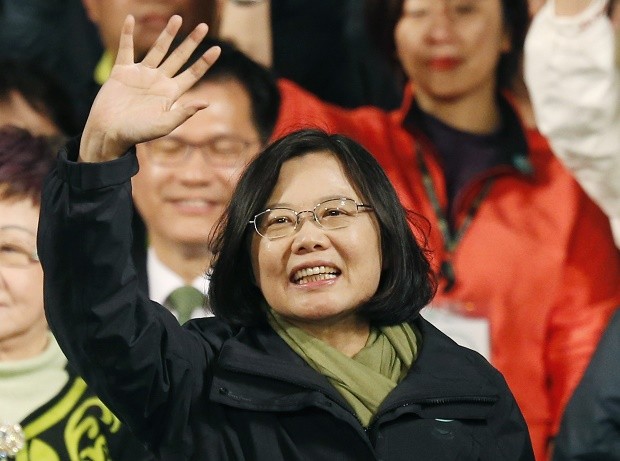What US presidents said about ties with China and Taiwan
President-elect Donald Trump spoke Friday with Taiwan’s President Tsai Ing-wen, a highly unusual and probably unprecedented move since the US broke diplomatic ties with the self-governing island in 1979 and shifted to diplomatic recognition of China under a so-called “one-China” policy.
Under that policy, the US recognizes Beijing as representing China but retains unofficial ties with Taiwan. Taiwan’s government has a representative office in Washington and other US cities. The US also has legal commitments to help Taiwan maintain the ability to defend itself.
READ: White House reaffirms ‘One China’ policy after Trump calls Taiwan leader
A look at some of the comments made by American presidents regarding the US relationship with China and Taiwan:
Jimmy Carter , February 1979, in response to a general question about China during a meeting with news editors:
US policy “does nothing to prohibit a future president or a future Congress, if we feel that Taiwan is unnecessarily endangered, from interposing the American Pacific Fleet between the island and the mainland. And there is certainly nothing to prevent a future president or Congress from even going to war, if they choose, to protect the people of Taiwan or to protect any other people … that we look on with favor.”
Ronald Reagan, August 1982, in his statement on the signing of a joint US-China communique that called for the ultimate reduction of US arms sales to Taiwan:
“The Taiwan question is a matter for the Chinese people, on both sides of the Taiwan Strait, to resolve. We will not interfere in this matter or prejudice the free choice of, or put pressure on, the people of Taiwan in this matter. At the same time, we have an abiding interest and concern that any resolution be peaceful. I shall never waiver from this fundamental position.”
Article continues after this advertisementGeorge Bush, February 1989, at a banquet in China with then-President Yang Shangkun:
“We remain firmly committed to the principles set forth in those three joint communiques that form the basis of our relationship. And based on the bedrock principle that there is but one China, we have found ways to address Taiwan constructively without rancor.”
Article continues after this advertisementBill Clinton, December 1999, asked if the United States would defend Taiwan:
“We oppose and would view with grave concern any kind of violent action. And that hasn’t changed. The politics of neither place (China and Taiwan) should lead either side into doing something rash. And I hope that this will not happen. But our policy is clear, and you know what I’ve done in the past. And I think that’s all I should say about it right now.”
George W. Bush, April 2001, when asked whether the United States would use military force to counter a Chinese attack on Taiwan:
“It’s certainly an option. The Chinese have got to understand that is clearly an option.”
Barack Obama, November 2014, in a joint news conference in Beijing with President Xi Jinping:
“I reaffirmed my strong commitment to our one-China policy based on the three joint communiques and the Taiwan Relations Act. And we encourage further progress by both sides of the Taiwan Strait towards building ties, reducing tensions and promoting stability on the basis of dignity and respect, which is in the interest of both sides, as well as the region and the United States.”
President-elect Donald Trump, December 2016, tweeting about his telephone conversation with Taiwan’s president:
“The President of Taiwan CALLED ME today to wish me congratulations on winning the Presidency. Thank you!”
“Interesting how the US sells Taiwan billions of dollars of military equipment but I should not accept a congratulatory call.”
